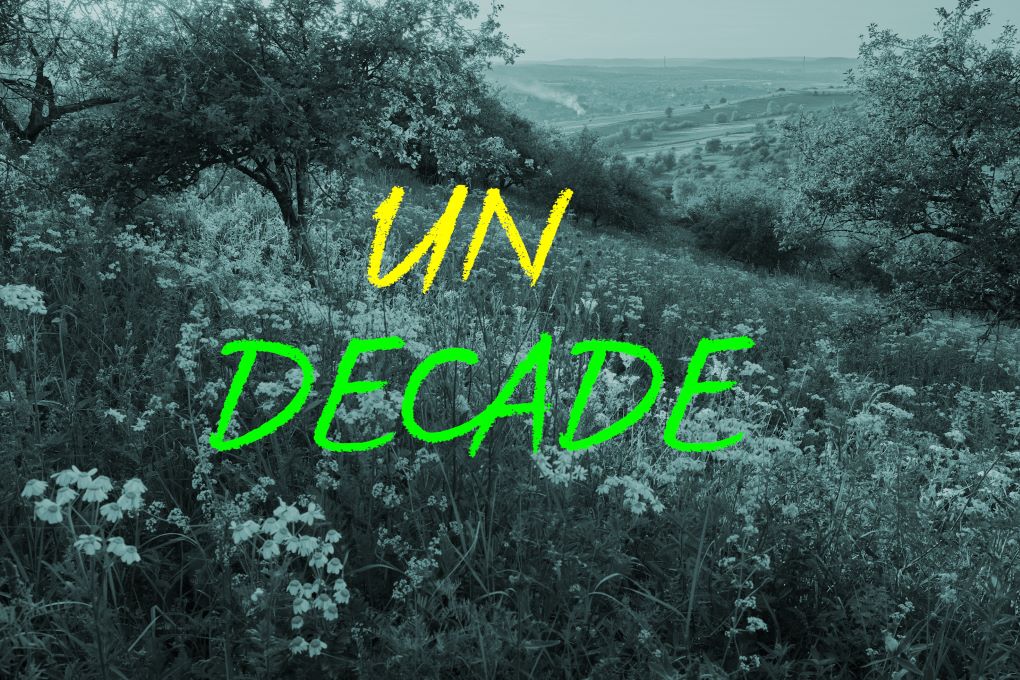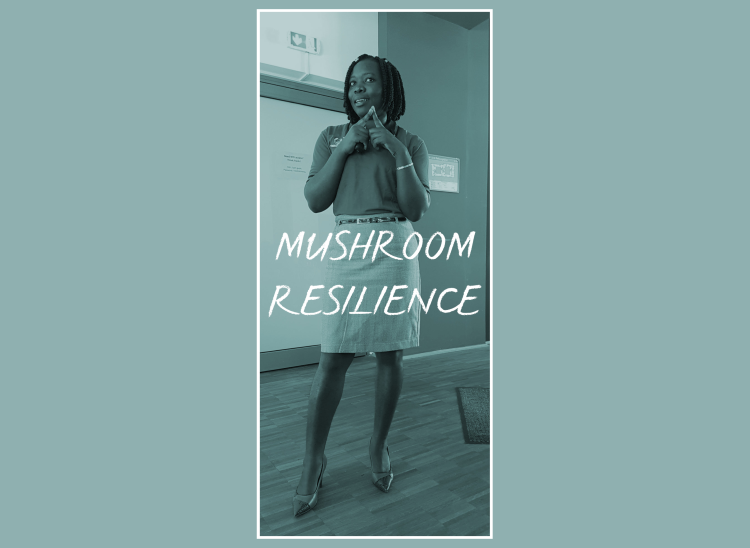Corporate sustainability goes hand in hand with many terms and…
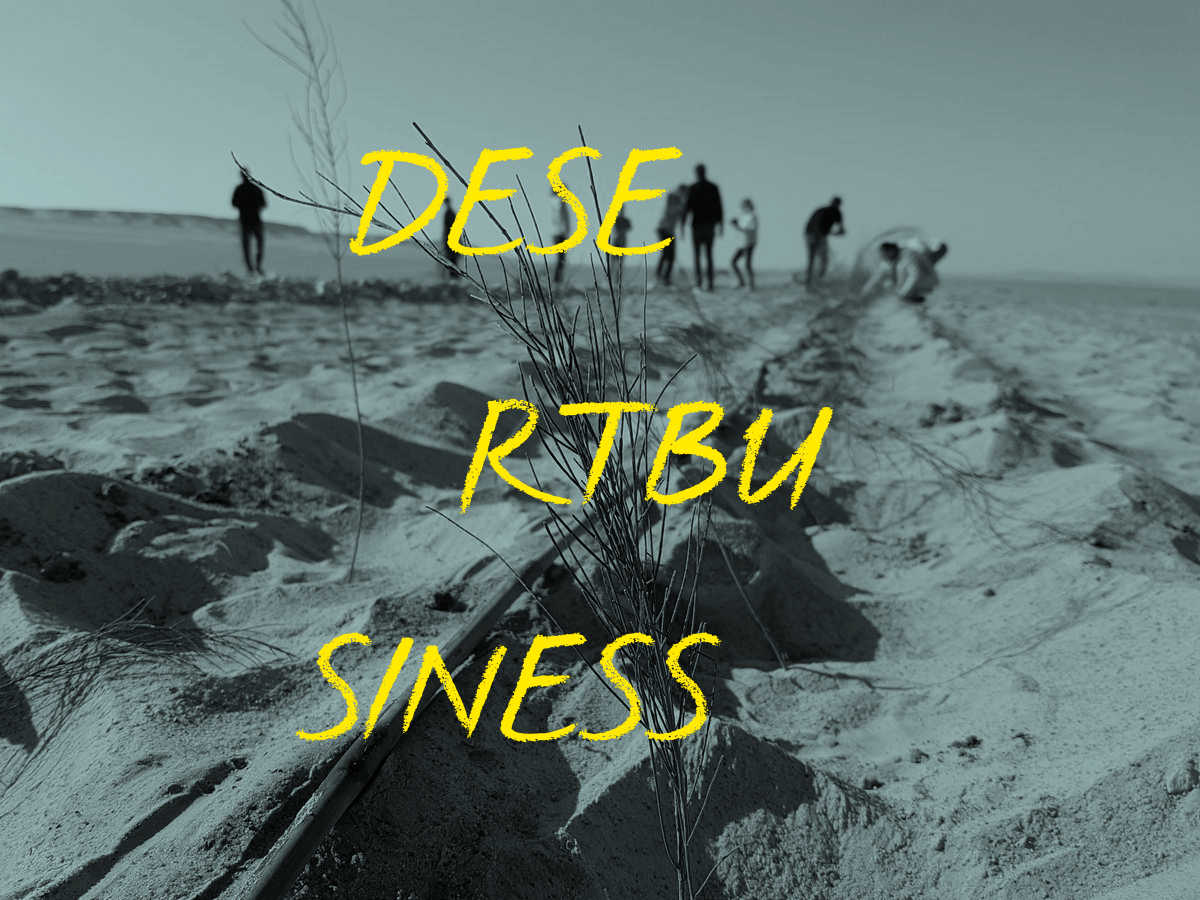
Planting hope is economical: How Sekem is greening the Wahat Desert
If even the desert can be greened, hope grows: an impressive project in the Wahat Desert by the Egyptian company Sekem shows how it can be done and what the economy can learn from it.
The desert is greening up on 1,000 hectares: an oasis is being created in the dry climate of the Egyptian region of Wahat Bahareya. Here, about 370 km southwest of Cairo, the company Sekem is daring to do the seemingly impossible. About 60 people are working to introduce biodynamic agriculture: With the help of compost, they are making the desert fertile again and are growing crops such as mint, camomile, calendula, jojoba and dates. It takes about three months to prepare the compost. And Sekem needs plenty of it: to turn one hectare of desert land into fertile land, more than 70 tonnes of compost are needed – in the first year alone. Sekem expects that with the newly created facility, Wahat Farm will be able to produce more than 12,000 tonnes of compost annually. By the end of 2025, the project aims to make more than 100,000 hectares of desert land arable.
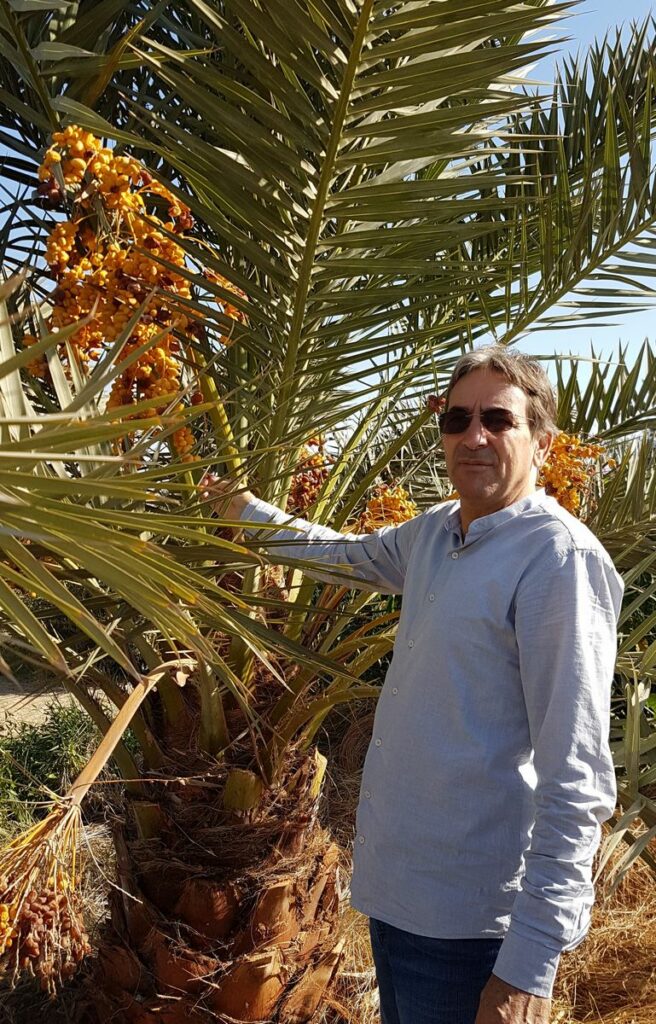
Sekem founder Helmy Abouleish shows one of the “cash crops” in the Wahat Desert: date palm trees – about ten years old –
produce tasty sweet crops and bind greenhouse gases at the same time.
Desert Can Bind CO2 and Promote Biodiversity
The “miracle in the desert” contributes to climate protection: Wahat Farm is working to further improve the quality of its compost in order to bind more CO2. For this purpose, the employees are experimenting with adding different amounts of basalt to their compost. They then test the effect of this mineral-rich stone on different crops. They are also planting numerous drought-resistant trees to gradually change the microclimate and regenerate local ecosystems. 400,000 have been planted so far. Species like the casuarina thrive particularly quickly. At nine metres per year, you can literally watch them grow. The survival rate of 65% in the first two years is high – especially under the dry conditions. Through these efforts, Wahat Farm has already been able to drastically increase local biodiversity: by 397% in flying insects, 430% in birds and 667% in plants. A project has also been launched to conserve the endangered Egyptian honey bee (also Lamarck’s honey bee).
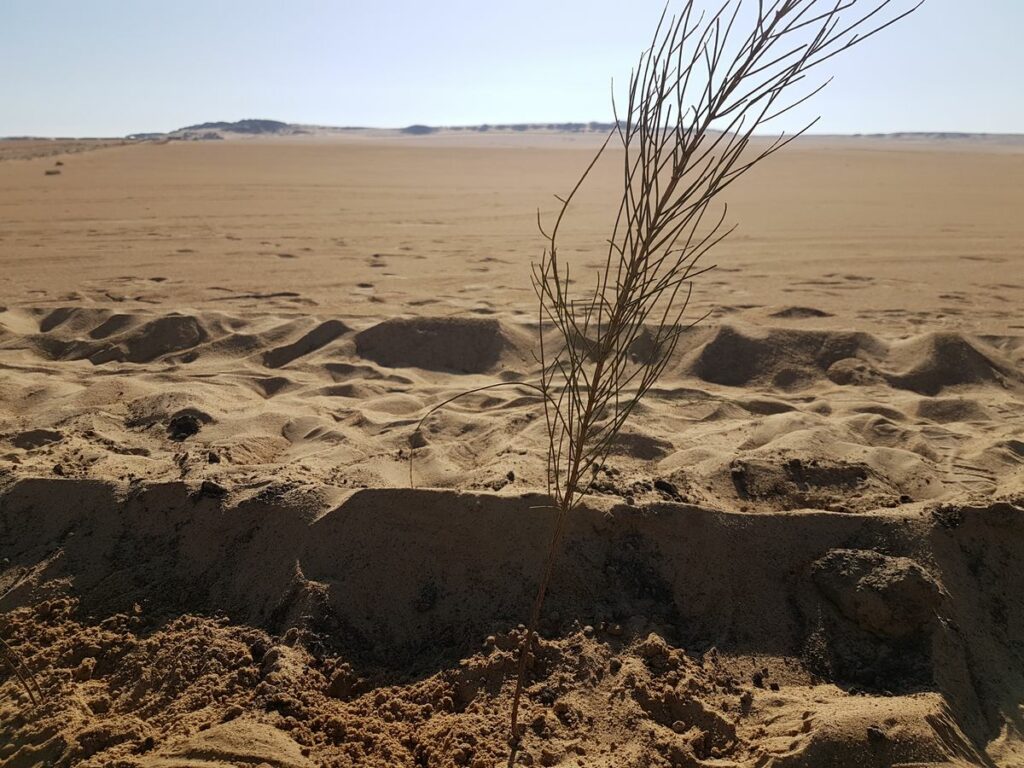
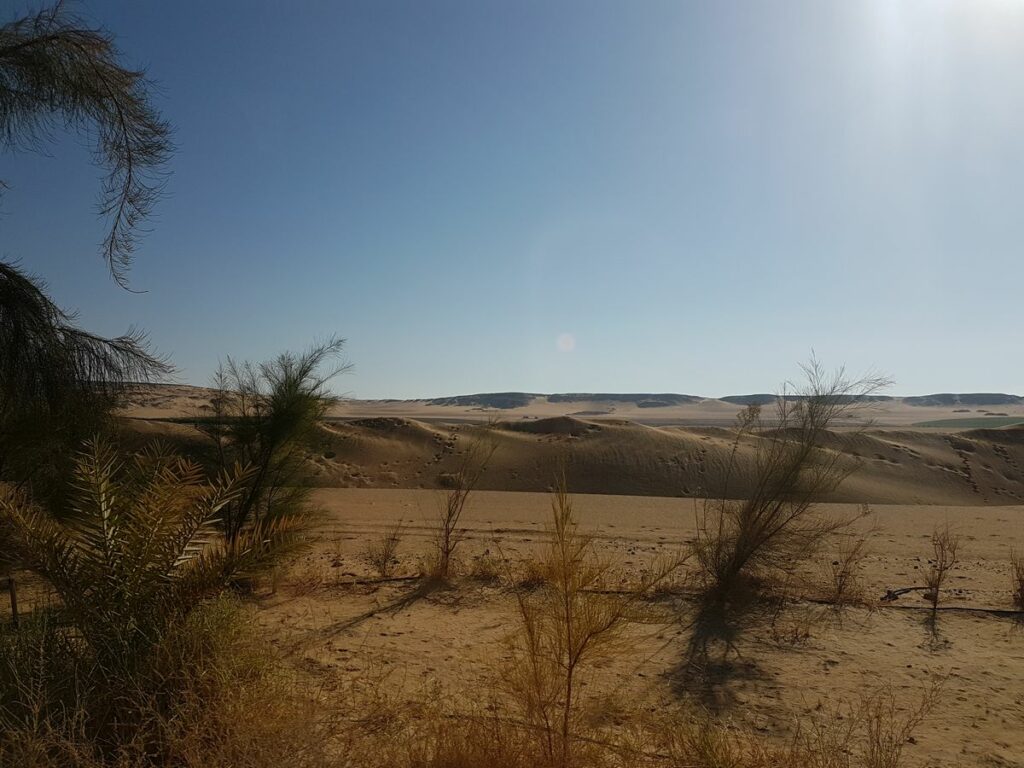
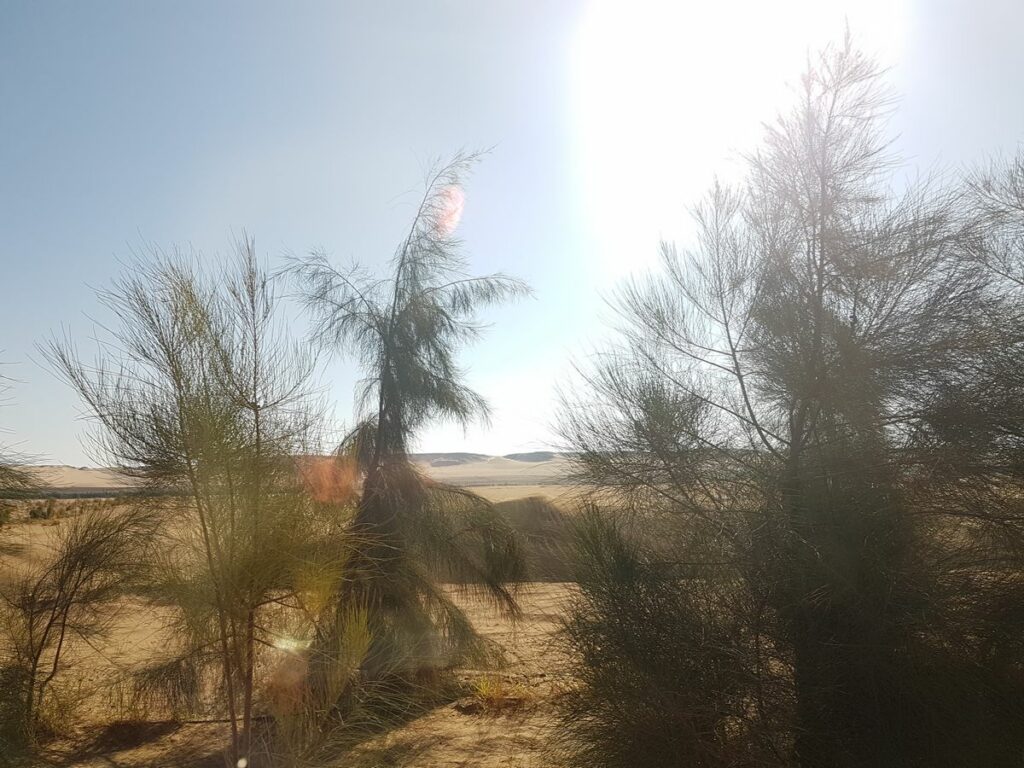
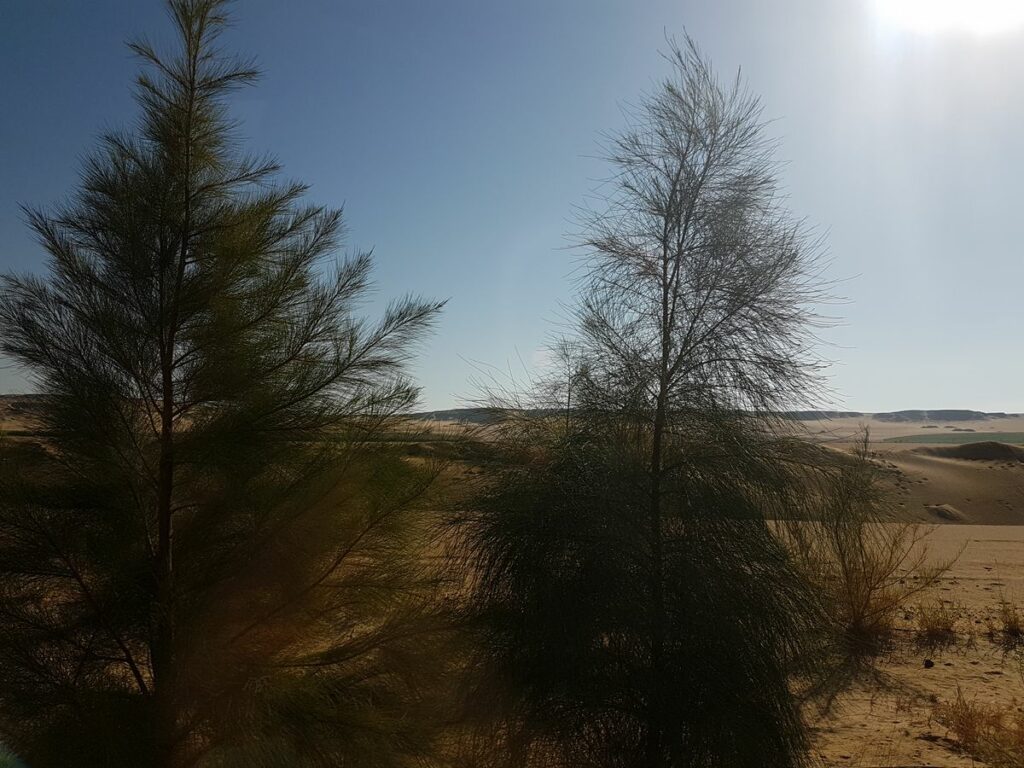
casuarinas gain about 9 metres per year.
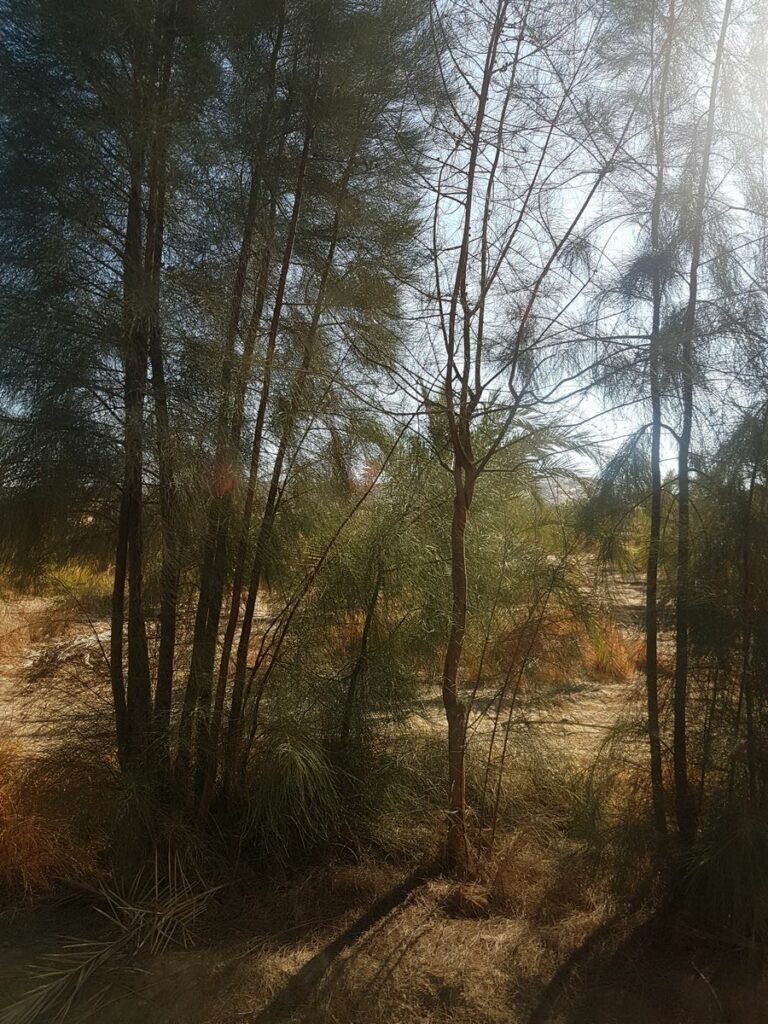
Financing the desert miracle: “Economy of love”
In addition to the ecological dimension of sustainability, the other three dimensions – economic, social and cultural sustainability – play an equally important role at Wahat Farm: By trading carbon credits, the farm receives financial means to increase its sphere of influence. The basis for issuing these carbon credits is the planting of trees (absorbing about 8t of CO2 per hectare), the improvement of soil quality, the production of compost and the use of solar energy to generate electricity. Sekem calls this approach to business the “Economy of Love“. A single Economy of Love Carbon Credit brings about multiple improvements:
- 545 sqm carbon sequestered in the soil
- 410 kg compost produced
- 13 trees planted
- Contribution to 9 SDGs (= global Sustainable Development Goals):
- Goal 2: Zero Hunger
- Goal 3: Good Health and Well-Being
- Goal 4: Quality Education
- Goal 8: Decent Work
- Goal 10: Reduced Inequalities
- Goal 12: Responsible Consumption and Production
- Goal 13: Climate Action
- Goal 15: Life on Land
- Goal 17: Partnerships for the Goals
- 100% soil and ecosystem healing through biodynamic approaches
- 10% of the land is dedicated to biodiversity
- 3% of the income is dedicated to farmer innovation
- 10% of working time is dedicated to art and personal development
- 100% of full-time employees receive health insurance (goal: by 2025, all temporary employees will be covered)
- 100% fair wages through Economy of Love value chains
- 100% less use of synthetic pesticides
In 2021 alone, Sekem was already able to
generate and sell 14,500 carbon credits.
Education and Culture as the Basis for Economic Success
Sekem attaches particular importance to educating its employees and their families so that they can discover and live their full potential. To this end, the company has built a kindergarten and a school for grades 1-7 at the Wahat site since 2021, which can accommodate 120 local children. Sekem also started a programme for employees who cannot read or write. An amphitheatre provides space for local artistic expression and a cafeteria serves as a social meeting place.
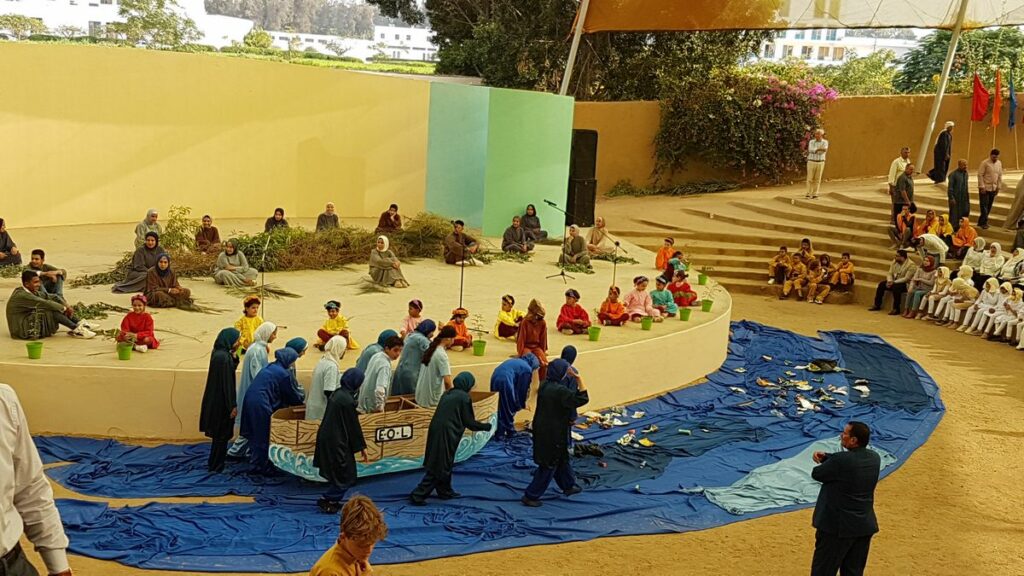
Long live biodiversity: At festivals organised by the Sekem company, children, young people and adults perform plays together with music, dance and costumes. In November 2022, they celebrated the diversity of species and ecosystems on land and in water.
Return on Investment at 4 Levels: Through Large-Scale Ecosystem Restoration
According to Commonland’s four returns model, the large-scale greening of the Wahat Desert thus creates added value on several levels:
- Inspiration: Giving people hope and a sense of purpose
- Social Capital: Creating jobs and economic activity, education and security
- Natural Capital: Restoring biodiversity, fertile soils, water quality and greenhouse gas sequestration
- Financial Capital: Realising long-term sustainable returns
Challenge Accepted, Support Welcome
Besides the climate extremes of the desert with very high temperature differences, the lack of water poses challenges for Wahat Farm. Although water is available, it is fossil water from the Nubian Aquifer, which has not participated in the atmospheric water cycle for a long time. In addition, there is poor infrastructure and education in the region, and the “distorted” food market, as vegetables are bought mainly from Cairo. Of the 250 million tonnes of CO2 that Egypt emits, 50 million tonnes alone come from agriculture. So there is enormous potential for climate protection here.
Sekem has already proven that the transformation can succeed at its main location about 60km north of Cairo. Here, about 2,000 people from 13 surrounding villages work in several companies on the bio-dynamic production of food, textiles, fragrances and more. 600 students study in the specially built school, and the Heliopolis University in Cairo, founded by Sekem ten years ago, is the first in North Africa to be completely dedicated to sustainability.
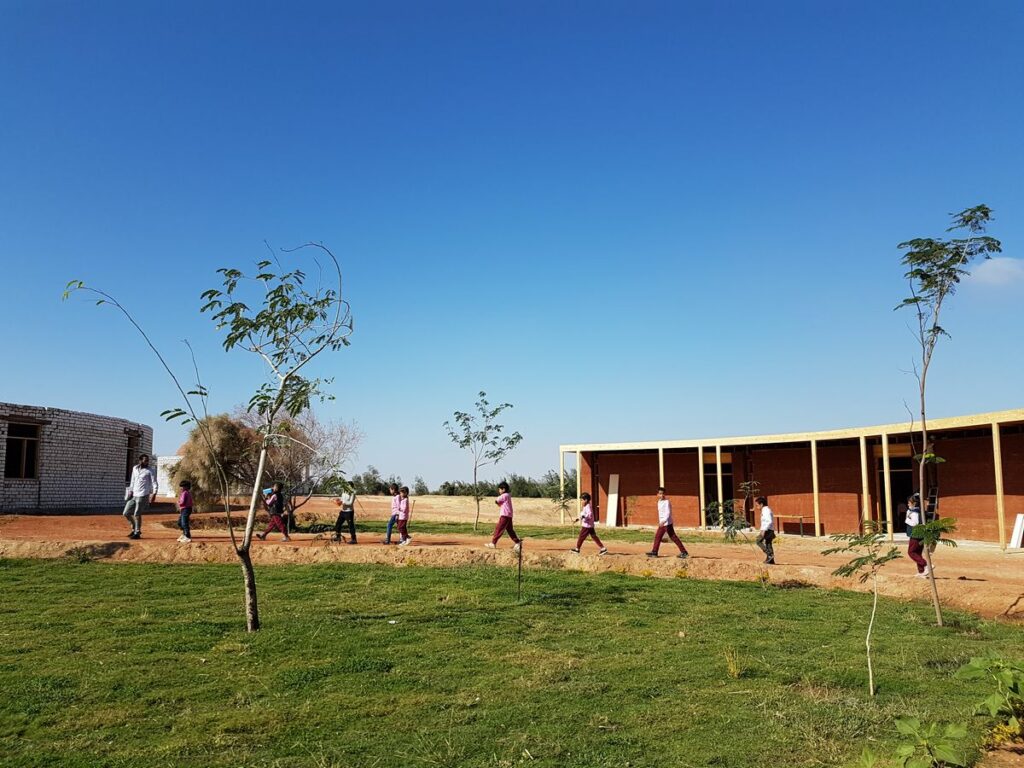
For Sekem, education and culture are the cornerstones of successful business. Here in the Wahat Desert, a new school is being built – the students are moving from one adobe classroom to the next.
Sekem welcomes partners and donors for the further growth of its projects. Organisations wishing to participate in the voluntary market of offsetting greenhouse gas emissions are also welcome. The goals include planting over 1 million trees in the Wahat Desert (350,000 so far), sequestering 21,000 tonnes of greenhouse gases in the form of 70,000 tonnes of high quality compost, expanding the school and community buildings, involving over 2,100 farmers in the short term, 40,000 in the medium term and over 250,000 in the long term, thus expanding the “Economy of Love”.
The Future Economy Forum kicked off in Sekem as part of the Regenerative Leadership Retreat (2-4 November). The Solutions Summit was another stop of the Forum and showcased role models for 21st century business. This blog post reports on the Solutions Summit.
Photos: Tina Teucher
Tina Teucher is an ambassador for regenerative economy. In November 2022, she visited the Sekem projects in Egypt as part of NOW Partners’ Future Economy Solutions Summit and saw the “miracle in the desert” with her own eyes. She is convinced: successful business brings more than just financial returns. Nature, society and hope are the hitherto hidden capital that sustains our companies and whose potential can be developed by decision-makers at all levels.
If you would like to read articles by and about Tina Teucher on a regular basis, simply subscribe to the newsletter. It is published about 4 times a year.

